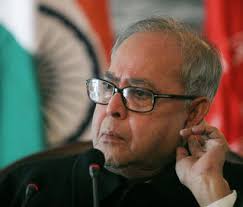Feb. 28 -- India’s government must be ready to take “corrective steps” to achieve its fiscal deficit- reduction target for next year should its budget assumptions start falling through, an aide to the prime minister said.
“You must be ready to correct yourself if things go wrong,” Montek Singh Ahluwalia, 66, said in an interview in his office in New Delhi yesterday. The goal of reducing the budget deficit to 5.5 percent of gross domestic product for the financial year starting April 1 “absolutely” must be met and “something will have to be done” if it’s endangered, he said.
India must convince investors it is committed to the deficit reduction, in part because the nation needs overseas capital to finance a current-account deficit. That shortfall may reach 2.5 percent of GDP from 2.2 percent as domestic demand grows more strongly than exports, according to Ahluwalia.

“We need to remain an investor-friendly environment,” said Ahluwalia, who is the deputy chairman of the Planning Commission, an agency that sets India’s growth and investment targets. He refrained from specifying what new efforts the government should be ready to adopt to maintain its fiscal goal.
Finance Minister Pranab Mukherjee two days ago unveiled a budget proposal featuring tax increases and 400 billion rupees ($9 billion) of state asset sales to help shrink the deficit from a 16-year high of 6.9 percent of GDP.
Budget Plan
The budget, betting on a faster global expansion in 2010, has assumed a nominal economic growth rate of 12.5 percent in India, helping boost tax revenues by 18 percent. It also aims to mobilize another 350 billion rupees by auctioning frequency licenses to mobile-phone operators.
JPMorgan Chase & Co. Mumbai-based analysts Jahangir Aziz and Gunjan Gulati called it a “risky” plan, saying it was based “narrowly on a few adjusters” to bring down the shortfall.
“The global economy can turn up nasty surprises,” the analysts said. “If a few things go wrong, the budget will look shaky.”
For now, indications are that the world economy is recovering from the first global recession since World War II. The U.S. and U.K. economies grew faster-than-expected in the fourth quarter.
The U.S. economy expanded at a 5.9 percent annual rate in the last three months of 2009, more than the government’s estimate last month, reflecting stronger business investment. Gross domestic product in Britain rose 0.3 percent last quarter, compared with a previous calculation of 0.1 percent gain, as the nation emerged from the recession.
Assuming ‘Optimism’

“We are making a set of assumptions which do build an optimism,” the Oxford-educated Ahluwalia said. “The important thing is that if they turn out to be different, are you going to react to make sure that you don’t continue to be optimistic when the facts don’t warrant.”
In India, the latest data for industrial production showed output gained 16.8 percent in December, the fastest pace since at least 1994 as sales at carmakers and cement producers gained.

Mukherjee told business chambers in New Delhi yesterday that the government had to cut next year’s budget deficit to facilitate credit flow to companies.
Grasim Industries Ltd., India Cements Ltd. and other producers of the building material sold 15 percent more in January from a year earlier. Sales at Tata Motors Ltd. and other local car manufacturers rose 32 percent to a record in January.
Foreign Investments

That’s helped foreign investments to flow into India even with a decline in global capital flows, Mukherjee said in parliament on Feb. 26. India got $20.9 billion in the nine months to Dec. 31 compared with $21.1 billion in the same period last year, he said.

“We are looking actively at having a policy environment which encourages foreign direct investments and other flows but not short-term capital flows,” said Ahluwalia, who worked as the top bureaucrat in the Ministry of Finance in 1991 when Prime Minister Manmohan Singh, then Finance Minister, opened the economy to foreign investors. Ahluwalia left the finance ministry in 1998 to join the Planning Commission as a member.
Ahluwalia said India wants foreign direct investments to finance the country’s current account gap.
He also said India contributes to global economic growth and isn’t “mercantilist,” when asked about Princeton University economist Paul Krugman saying that China is sapping demand from other emerging markets.
Ahluwalia declined to comment specifically on China, saying “the Chinese say that’s not what they’re doing.”
He said a 10 percent growth rate in India is achievable over the next two decades.
This would mean per capita income will grow at 7.5 percent a year, doubling every nine years.
“We want to stretch the limit,” Ahluwalia said.


No comments:
Post a Comment